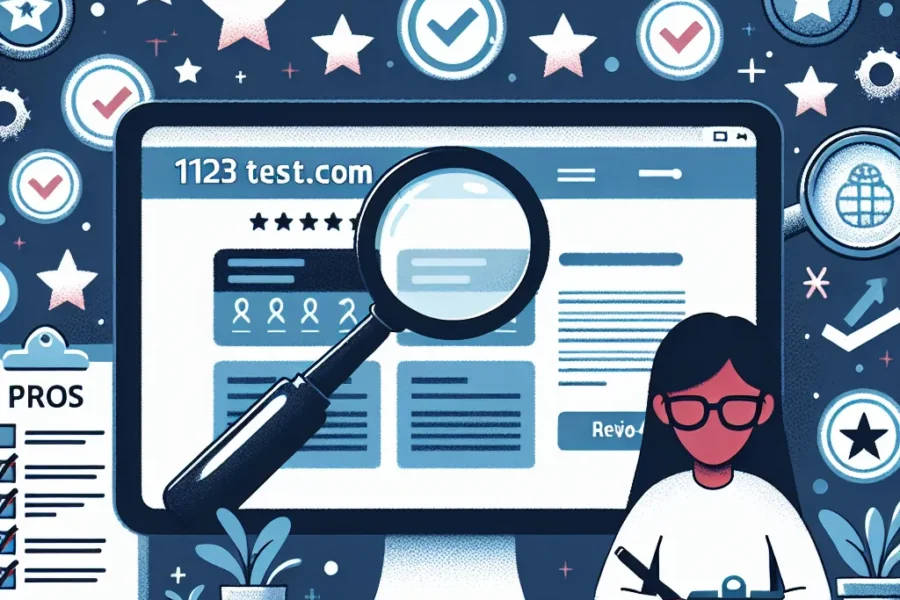**Is Hechingerreport.org Trustworthy?**
In the ocean of online intelligence tests, Hechingerreport.org offers yet another option for those curious about their cognitive abilities. But as with many things on the internet, not all that glitters is gold. Questions often arise about the credibility and trustworthiness of these online IQ assessments. In this article, we will take a critical look at Hechingerreport.org’s IQ test, addressing its many shortcomings and questionable reliability.
If you are looking for legitimate IQ Tests which pass the entry bar for Mensa, see our IQ Tests.
Firstly, it is important to understand the complexities involved in creating a reliable and valid IQ test. An IQ test is more than just a set of puzzles designed to stump you; it requires comprehensive research, extensive norming data, and a strong theoretical foundation. One of the cornerstone elements for any serious IQ test is the presence of a g-factor study. The g-factor, or general intelligence, is a construct that summarizes how well a person can perform various cognitive tasks. Unfortunately, Hechingerreport.org lacks an easily accessible g-factor study, casting doubt on the validity of its test.
In psychological assessments, norming data is critical as it establishes the test’s ability to compare an individual’s performance with that of a representative sample. High-quality IQ tests go to great lengths to collect norming data from diverse populations, ensuring that the results are both accurate and meaningful. Regrettably, Hechingerreport.org falls short in this area. A thorough search of their website reveals no detailed information about how their test was normed, who constituted their sample population, or how extensive their data collection process was. This gap raises significant questions about the accuracy and generalizability of their results.
Another aspect that undermines the reliability of Hechingerreport.org’s IQ test is the abundance of negative reviews scattered across various online platforms. A quick glance at forums, review websites, and social media platforms reveals a litany of complaints about the test’s accuracy, clarity, and overall user experience. Common issues reported include ambiguous questions, inconsistent scoring, and results that seem to fluctuate with each attempt. These reviews are crucial as they offer firsthand accounts of user experiences, often highlighting flaws that might not be immediately evident.
One must also consider that most online IQ tests, Hechingerreport.org included, lack the rigor and oversight that come with proctored, in-person IQ examinations. Professional IQ tests, such as the Wechsler Adult Intelligence Scale (WAIS) or the Stanford-Binet Intelligence Scales, are administered under carefully controlled conditions, supervised by trained psychologists. These settings ensure that test takers are thoroughly vetted and that their scores are interpreted within the proper context. In stark contrast, online IQ tests are taken in uncontrolled environments, where various factors could easily influence performance and results. This lack of oversight significantly diminishes the credibility of these online tests.
Moreover, the user interface and experience of Hechingerreport.org’s IQ test leave much to be desired. Reports frequently indicate that the website is cluttered and difficult to navigate. This interface issue not only frustrates users but also undermines the perceived professionalism and reliability of the test itself. A well-designed test would prioritize user experience, ensuring that individuals could easily navigate through each section without unnecessary confusion.
The transparency of a test’s methodology is another cornerstone of its trustworthiness. Ideally, a site offering an IQ test should provide comprehensive details about its development process, including information on the qualifications of the test developers, the statistical methods used to analyze test items, and the validation studies conducted to ensure accuracy. Sadly, Hechingerreport.org offers scant information in this regard. For a site purporting to measure intelligence, this lack of transparency is both ironic and troubling.
Aside from the methodological and experiential concerns, it is also important to scrutinize the motives behind the IQ test offered by Hechingerreport.org. Many online IQ tests exist primarily as a means of data collection or as a funnel to attract users to pay for a more “comprehensive” result. While there is no direct evidence to suggest Hechingerreport.org operates on this model, the proliferation of similar platforms with questionable intentions makes it a relevant point of concern. Users should remain cautious and skeptical about any online IQ test, particularly those that offer little in the way of scientific validation.
Furthermore, Hechingerreport.org fails to provide adequate post-test support. In professional settings, test results are often followed by detailed reports and consultations with psychologists to help interpret the results within the context of the individual’s unique background and experiences. Such support is crucial for understanding what an IQ score truly represents and how it might be used to inform educational or career decisions. The absence of such comprehensive feedback from Hechingerreport.org further detracts from the test’s utility and reliability.
Considering these numerous shortcomings, it becomes evident that Hechingerreport.org’s IQ test is not in the same league as professionally developed, proctored IQ assessments. Without a g-factor study, norming data, a positive user experience, and sufficient post-test support, it is difficult to regard the test as much more than a digital diversion. Those seriously interested in understanding their cognitive abilities would be better served by seeking out well-established, scientifically validated IQ tests administered by qualified professionals.
In conclusion, while Hechingerreport.org might serve as an entertaining exercise or a casual curiosity, it lacks the necessary elements to be considered a reliable tool for assessing intelligence. As consumers in the digital age, we must be discerning and critical of the tools we use, especially when it comes to something as significant as measuring cognitive abilities. Before investing time or money into an online IQ test, carefully consider the test’s legitimacy, underlying methodology, and the credibility of the platform offering it. By doing so, you can ensure that you are gaining meaningful insights rather than falling prey to unreliable or misleading assessments.



Leave a Comment